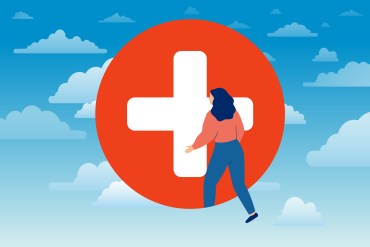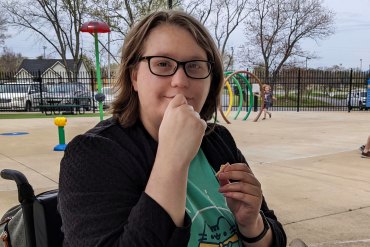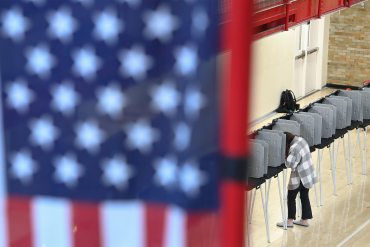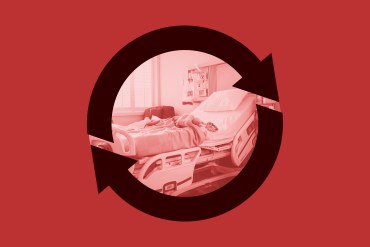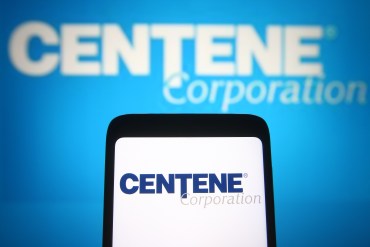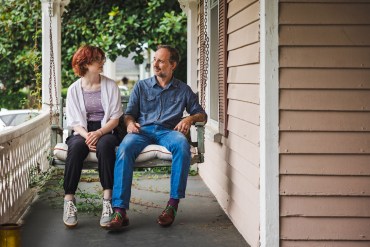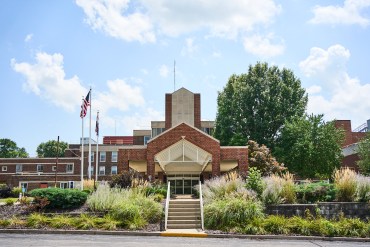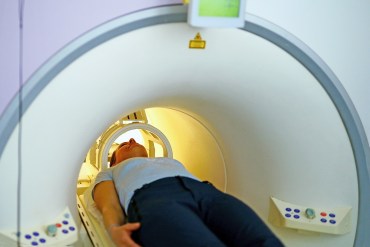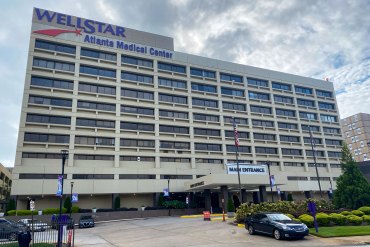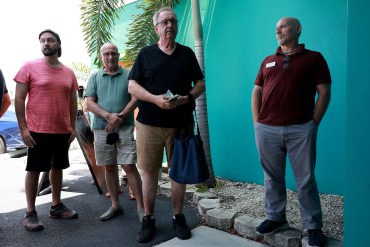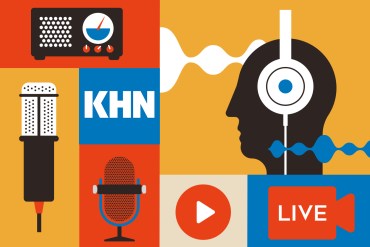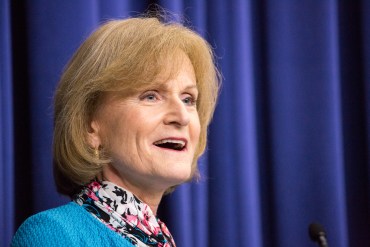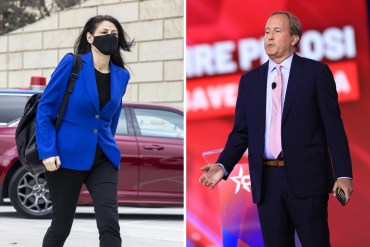How Optimism Can Close the Medicaid Coverage Gap
Low-income residents in states that haven’t expanded Medicaid are in a tough spot: They don’t qualify for the subsidies that people with slightly higher incomes get to buy marketplace plans because of a glitch in the federal health law. But a court decision last year makes it easier for them to make good-faith estimates of a pay increase, and there is no financial penalty if they don’t hit that figure.
‘Impending Intergenerational Crisis’: Americans With Disabilities Lack Long-Term Care Plans
Many Americans with intellectual and developmental disabilities do not have long-term plans for when family members can no longer care for them. Families, researchers, and advocates worry that has set the stage for a crisis in which people with disabilities could end up living in institutional settings.
Abortion Issue Helps Limit Democrats’ Losses in Midterms
Although control of Congress was still undecided Wednesday, Republicans seemed poised to take power in the House, while the fate of the Senate remained too close to call. Economic issues were at the top of voters’ minds, but abortion access also played a large role in their decisions.
Defense Department Health Plan Cuts Its Pharmacy Network by Nearly 15,000 Outlets
Many of the pharmacies were small, independent operations that had decided not to participate next year because of the lowered reimbursement being offered. But they were surprised by an early dismissal, and some patients with specialized drug needs could face difficulties in the transition.
Centene Showers Politicians With Millions as It Courts Contracts and Settles Overbilling Allegations
Centene, the largest Medicaid managed-care company in the U.S., has thrown more than $26.9 million at political campaigns across the country since 2015, especially focused on states where it is wooing Medicaid contracts and settling accusations that it overbilled taxpayers. Among its tactics: Centene is skirting contribution limits by giving to candidates through its many subsidiaries.
Medicare Fines for High Hospital Readmissions Drop, but Nearly 2,300 Facilities Are Still Penalized
Federal officials said they are penalizing 2,273 hospitals, the fewest since the fiscal year that ended in September 2014. Driving the decline was a change in the formula to compensate for the chaos caused by the covid-19 pandemic.
Centene Gave Thousands to Georgia Leaders’ Campaigns While Facing Medicaid Overbilling Questions
Centene is trying to settle accusations of Medicaid pharmaceutical overcharging in Georgia, and the St. Louis-based company has been giving thousands of dollars to the campaigns of the state attorney general and the governor.
Turned Away From Urgent Care — And Toward a Big ER Bill
Russell Cook was expecting a quick and inexpensive visit to an urgent care center for his daughter, Frankie, after she had a car wreck. Instead, they were advised to go to an emergency room and got a much larger bill.
Buy and Bust: After Platinum Health Took Control of Noble Sites, All Hospital Workers Were Fired
Two Missouri towns are without operating hospitals after private equity-backed Noble Health left both facilities mired in debt, lawsuits, and federal investigations. The hospitals’ new operator, Platinum Health, agreed to buy them in April for $2 and laid off the last employees in early September.
Many Refugees Dealing With Trauma Face Obstacles to Mental Health Care
Refugees are arriving in the U.S. in greater numbers after a 40-year low, prompting some health professionals to rethink ways to provide culturally competent care amid a shortage of mental health services.
New Abortion Laws Jeopardize Cancer Treatment for Pregnant Patients
As abortion restrictions take effect across the South in the wake of the Supreme Court’s decision to overturn Roe v. Wade, cancer doctors are trying to decipher the laws. They’re grappling with how to discuss options with pregnant patients, who may be forced to choose whether to proceed or forgo lifesaving cancer treatments that can prove toxic for the fetus.
Impending Hospital Closure Rattles Atlanta Health Care Landscape and Political Races
The nonprofit owners of Atlanta Medical Center, a 460-bed Level 1 trauma center in the heart of the city, plan to close the hospital in November. As many community members worry about the hole the closure will leave in the city’s safety net, the news has thrust health care into the political spotlight less than two months before Election Day.
Southern States’ Lackluster Monkeypox Efforts Leave LGBTQ+ Groups Going It Alone
The gay community is disproportionally affected by the monkeypox outbreak, and the Centers for Disease Control and Prevention says public health efforts should prioritize gay and bisexual men. But in the South, some LGBTQ+ advocates fear that this is not happening consistently. They say they are having to take matters into their own hands in the absence of a coordinated response from state governments.
Journalists Delve Into Inflation Policy, Hospital Closures, and Needle Exchanges
KHN and California Healthline staff made the rounds on national and local media this week to discuss their stories. Here’s a collection of their appearances.
When Does Life Begin? As State Laws Define It, Science, Politics, and Religion Clash
For decades, the U.S. medical establishment has adhered to a legally recognized standard for brain death, one embraced by most states. Why is a uniform clinical standard for the inception of human life proving so elusive?
Meet Mary Wakefield, the Nurse Administrator Tasked With Revamping the CDC
Dr. Rochelle Walensky, head of the Centers for Disease Control and Prevention, has tapped Mary Wakefield to help “reset” the agency after its public failures handling the covid pandemic. Those who know Wakefield say her high standards and problem-solving skills make her a good fit for the job.
Grassroots Work Leads to Vaccination Success in Georgia Refugee Community
Public health officials and resettlement groups across the U.S. have used community organizers to encourage newly arrived refugees and other vulnerable people to get vaccinated against covid-19. In a Georgia city that is home to many refugees, the vaccination rate is higher than in the state, county, and surrounding communities of similar socioeconomic status.
El trabajo de base aumenta la tasa de vacunación en la comunidad de refugiados de Georgia
Funcionarios de salud pública y grupos de reasentamiento han utilizado estrategias exitosas y han logrado altas tasas de vacunación en comunidades vulnerables.
Abortion Is Shaking Up Attorneys General Races and Exposing Limits to Their Powers
Abortion access is shaping races for legal office across the country, from local district attorneys to attorneys general. But it’s also highlighting the boundaries of their offices.
Public Health Agencies Adapt Covid Lessons to Curb Overdoses, STDs, and Gun Violence
Know-how gained through the covid pandemic is seeping into other public health areas. But in a nation that has chronically underfunded its public health system, it’s hard to know which changes will stick.




